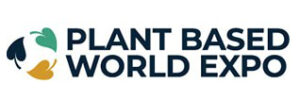
Small businesses in the hospitality sector will need to be nimble, creative and disciplined to navigate upcoming challenges
By Ben Johnston, chief operating officer of Kapitus, a leading provider of financing for small and medium-sized businesses
Last year will be remembered for the Federal Reserve’s interest rate hikes that attempted to tame inflation by slowing the economy.
It will also be remembered for high, but declining, inflation, and a resilient job market that fueled both wage growth and strong consumer spending. This spending drove demand for everything from housing to cars to vacation rentals, but as interest rates rose steadily throughout the year, demand froth began to subside, and prices for many items in short supply came down.
As we enter 2023, employment remains high and wage growth strong, supporting the American consumer’s ability to spend. However, cracks in demand are beginning to appear. Consumers are still spending, but many have eaten into their savings and increased their credit card debt to do so. A weakening of the U.S. consumer generally has a negative effect on U.S. small businesses, as most small business revenue is derived from consumer spending. If consumer spending declines in 2023, we can expect small businesses to suffer.
Many small businesses will also struggle to obtain the capital required to fund their daily operations. Banks are now facing increasing delinquency rates, higher borrowing costs, and deposit outflows as consumers burn through their savings and chase higher yields from non-bank investment opportunities. As a result, many banks are being forced to reduce lending to small businesses and raise prices. This means higher cost of capital and fewer options for growing small businesses.
Fortunately, there are several strong non-bank small business lenders, such as Kapitus, that are working to fill the funding gap left as banks tighten. Kapitus has been providing growth capital to small businesses for the past 17 years, through periods of expansion, contraction, natural disasters and a global pandemic. It is during periods of uncertainty that our customers need us the most, and we expect 2023 to be a year in which our capital is especially valued. The following lays out our expectations for the small business economy in 2023 and how specific small business industries will be impacted.
- Hospitality and Travel: Travel, events and in-person gatherings are back on as consumers are reestablishing routines and celebrating being together in person again. We expect this trend to continue in 2023 so long as employment and the economy remain strong. Hotels, conference centers and the airlines should benefit from an increase in business travel, while resorts, cruises and theme parks should benefit from strong consumer demand. Slower inflation rates and slightly more flexible labor markets may help improve margins across the industry.
- Restaurants: The restaurant industry rebounded in 2022, benefiting from strong consumer spending and a U.S. population that largely cast-off their fears of public gatherings. However, a tight labor market and rising food prices reduced margins for restaurants, many of which struggled to adequately meet rising demand for service.

We expect 2023 to be a strong year for restaurants as wage and food cost inflation appears to be moderating and consumer spending remains strong. However, should unemployment rise, and the country enter a recession, restaurants would likely be one of the first industries to feel the impact of a reduction in consumer spending.
American consumers love to eat out, but when times are tight, discretionary spending is cut in favor of essentials like housing, transportation and basic groceries. Fortunately, employment to date has remained strong, supporting consumer spending across the food industry.
As we look ahead at 2023, we see that supply chain constraints that left kitchens short of critical supplies during 2021 and 2022 have improved, but inflation remains high and the job market tight. We expect inflation to remain elevated throughout the year, but employment to also remain strong, supporting consumer spending across the food industry. While we don’t expect to see significant growth in the restaurant industry in 2023, we do expect tighter consumer budgets to benefit lower-cost fast casual restaurants over higher-priced establishments.
Other economic impacts for the hospitality sector:
- The global supply chain: The global supply chain made a dramatic recovery in 2022 as the world opened-up from the pandemic and stimulus-driven excess demand subsided. Russia’s invasion of Ukraine disrupted oil and grain markets, causing spikes in energy and food prices, but the market has largely compensated for these disruptions, and we expect the normalization of supply chains that we experienced in 2022 to continue into 2023. Potential wild cards disrupting this prediction would include an escalation of the war in Ukraine, or the introduction of another significant conflict, such as the invasion of Taiwan. Also, while we believe that the worst of COVID is behind us, China continues to struggle with the virus and the potential for a new variant sweeping the world remains a possibility.
- The political environment: With Republicans taking control of the House and Democrats holding the Senate and the White House, major economic legislation appears unlikely in 2023. A very small Republican majority in the House lends power to the more extreme elements of the party. That could make governing difficult for the Speaker of the House, who will need to negotiate with multiple constituents in order to move critical legislation (such as raising the debt ceiling) forward. We expect to see at least the credible threat of a government shutdown in 2023, leading to market volatility and a potential impact on interest and currency rates.
Small businesses employ nearly 50% of the workforce and account for approximately 44% of the country’s GDP, making them a critical force driving the U.S. economy. Small businesses owners are creative and resilient, having managed through the pandemic, inflation, demand fluctuation and supply chain disruptions. Despite the challenges they face today, small businesses will adapt to whatever changes 2023 brings and move to meet the market where consumers are. This is the strength of our capitalistic system and the backbone of the U.S. economy.

ABOUT THE AUTHOR
Ben Johnston is the chief operating officer of Kapitus, one of the most reliable and respected names in small business financing. Kapitus provides growth capital to small businesses and has provided over $4.5 billion to over 50,000 small businesses since 2006. Kapitus offers a number of loan products to small businesses, including SBA loans, revenue-based financing, equipment financing, cash-flow based factoring, revolving lines of credit and invoice factoring. For more information, visit kapitus.com.










